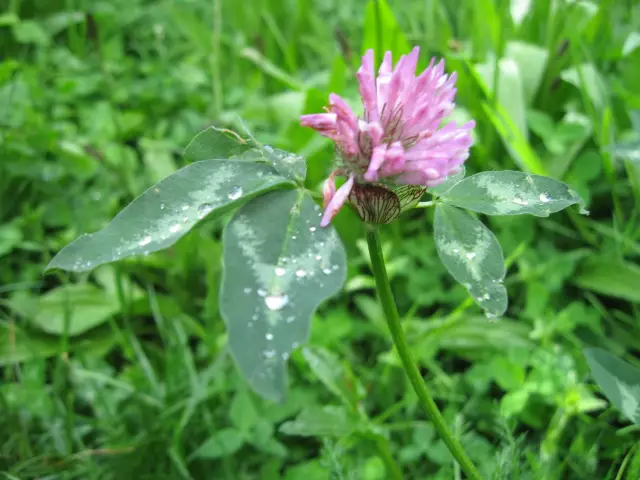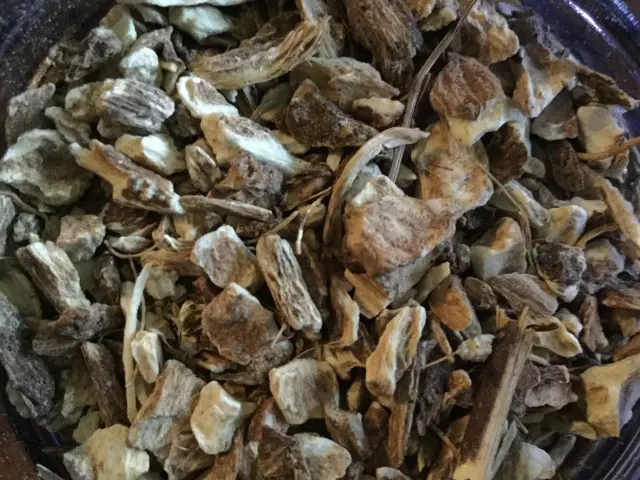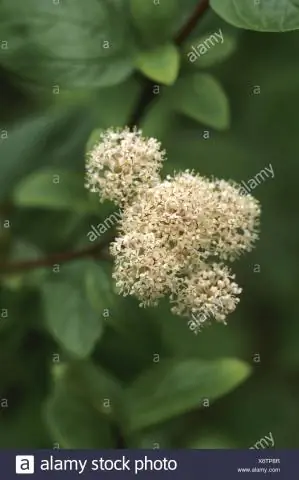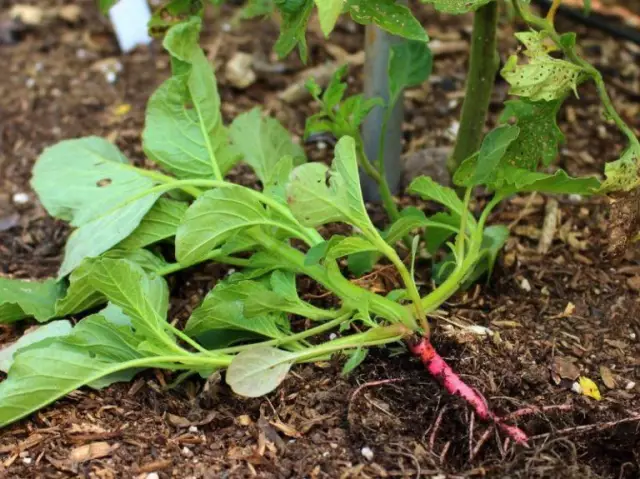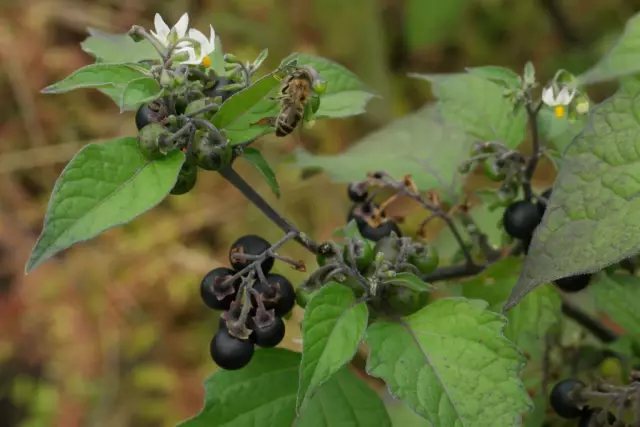- Author Rachel Wainwright wainwright@abchealthonline.com.
- Public 2023-12-15 07:39.
- Last modified 2025-11-02 20:14.
Red clover
Instructions for use:
- 1. Description
- 2. Application
- 3. Contraindications
Prices in online pharmacies:
from 27 rubles.
Buy
Description of meadow clover

Red clover is a perennial plant with straight, slightly pubescent stems, small dark red small flowers, collected in spherical heads. It is known from the botanical description of meadow clover that it belongs to legumes. Clover gives flowers in July, August, during this period it is harvested for further use for medicinal purposes. Clover is dried in the air, spreading the grass with flowers in a thin layer, or at a temperature of 60-70 degrees in special dryers. You can store clover grass for a year, and inflorescences for 2 years. When harvesting medicinal raw materials, it is important to be able to distinguish meadow clover from hybrid or creeping clover - these plants contain less nutrients. Creeping and hybrid clover are distinguished by white and pink, respectively, inflorescences, smoother leaves and a creeping, rather than straight stem.
Clover is grown mainly as a fodder crop for farm animals, but the healing properties of meadow clover are also known: the stems, leaves, flowers contain salicylic, ascorbic, coumaric, ketoglutaric acids, essential and fatty oils, resins, carotene, glycosides isotrifoline and alcaloid,, tannins, flavonols, vitamins B, E, phosphorus and calcium salts.
The root of meadow clover is also useful - an antifungal substance (tripolyrizin) is isolated from it, used as an anti-cancer agent, anti-inflammatory in gynecology, for the treatment of hernia.
In general, meadow clover is valued for the fact that it has an antiseptic, astringent, diuretic, expectorant, hemostatic effect.
Application of meadow clover

The stems of the plant are used as a remedy for scurvy and atherosclerosis, rickets, and malaria. Folk remedies made from clover stalks help relieve headaches and eliminate dizziness, increase appetite, and serve as an antiseptic.
Tinctures and decoctions are used for anemia, metrorrhagia, asthenia, asthma, shortness of breath, cancer. The juice from the stems is used for the same indications, as well as for lingering coughs, bronchitis, poisoning, gout, acute colds.
Outwardly, decoctions from the stems are used for abscesses, diathesis, malignant neoplasms, burns, to relieve rheumatic and other pains, heal wounds, and soften the skin.
Clover juice is also used externally - to treat diseases of the eyes, ears, felon, hernia.
The beneficial properties of meadow clover are used in homeopathy - the composition of various preparations includes the essence of blooming fresh clover.
Clover leaves help heal wounds and stop bleeding.
Clover leaf juice is used for exudative diathesis (scrofula). A decoction of the leaves is used topically for burns, abscesses, for treating tumors, relieving pain, inflammation, and wound healing.
Separately, the beneficial properties of clover flowers are distinguished. They can also be applied externally and internally. Decoctions of clover flowers are good for treating wounds, bedsores, burns, ulcers, abscesses, treating panaritium and paronychia, eye and ear diseases. Inside take decoctions for anemia, scrofula, gastritis, colitis, bronchial asthma, chronic cough, urolithiasis, cholecystitis, diathesis.
The use of meadow clover is widespread in folk medicine. There are such recipes for tinctures and decoctions:
1. Broth from the roots of meadow clover: you need to take 20 g of chopped roots, pour 200 ml of hot water over them, boil in a water bath under a lid (preferably in an enamel bowl) for half an hour, after which, without cooling, immediately strain, squeeze out the roots, bring boiled water to the original 200 ml. Take such a decoction from the root of meadow clover in a spoonful of tablespoon 4-5 r / day before meals.
2. A decoction of flowers: 20 g of flowers are poured with 250 ml of water, boiled for 15 minutes, insisted for half an hour, filtered. You need to drink such a decoction 3-4 r / day for 0.25 cups.
3. Infusion of flowers: 20 g of flowers are poured over 200 ml of boiling water, kept for an hour, filtered. They drink clover infusion 3 r / day, 2-3 tablespoons of tablespoons or 0.5 cups.
4. Infusion of stems, leaves (grass) of clover: 40 g of raw materials are poured with boiling water (200 ml), kept for an hour, filtered. You need to drink the infusion at 0.25 glasses 3-4r / day.
5. Clover juice is prepared from the stems, flowers, leaves of the plant. Drink it in 1/4 or 1/3 cup, mixing it with honey 3-4 r / day.
For external use of meadow clover decoctions are prepared according to the same recipes.
In addition, the beneficial properties of meadow clover can be used to prevent those diseases that the plant helps to cure. To do this, you can regularly brew and drink tea from clover flowers, and make salads from fresh young leaves.
Contraindications
Clover should not be used for therapeutic purposes in pregnant women, those who have varicose veins, thrombophlebitis, estrogen-dependent cancer, have a tendency to diarrhea and those who are concerned about chronic stomach pain. It is undesirable to take clover infusions and decoctions for heart disease, stroke.
Clover meadow: prices in online pharmacies
|
Drug name Price Pharmacy |
|
Heritage of nature meadow clover raw vegetable chopped 50 g 1 pc. RUB 27 Buy |
|
Red clover 50 g 1 pc. RUB 51 Buy |
Information about the drug is generalized, provided for informational purposes only and does not replace the official instructions. Self-medication is hazardous to health!

